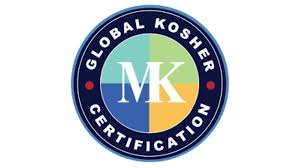Kosher food standards have become more visible in recent years. What started as a requirement within religious communities has now spread to mainstream food production, packaging, and retail. Whether a product is manufactured locally or internationally, meeting Kosher requirements gives it access to a broader market.

What Is Kosher Certification?
Kosher certification is a stamp of approval that confirms food products meet specific dietary laws. These laws cover everything from ingredients to preparation methods. Certification ensures that no non-Kosher ingredients are used, and that equipment is kept separate when necessary. This includes meat, dairy, and parve (neutral) categories.
This label is not only for those who keep religious laws. Many shoppers also look for Kosher goods because they believe the process adds a layer of quality control. Some people choose these products for allergy or dietary reasons, as the standards often include checks that go beyond basic food safety.
Who Issues Kosher Certification?
A Kosher certification agency is responsible for approving and inspecting products. They check labels, review ingredient sourcing, and visit production facilities to make sure everything aligns with Kosher rules. The agency provides training, guidance, and ongoing inspections to maintain standards.
It’s not just about food. Certification can apply to cleaning supplies, packaging materials, or even equipment used in the production line. If a business wants to use the Kosher symbol, they must go through this formal process with an approved Kosher agency.
What Does Kosher Certified Mean?
When a product is Kosher certified, it means it has passed a full inspection. This includes reviewing every ingredient and how it’s handled. Even flavourings, preservatives, and colourings are checked. Nothing is assumed – everything must be verified. This is especially important in large production facilities where many types of products are made on the same line.
Certification doesn’t happen once and then it’s done. Ongoing checks are part of the process. Products can lose their certification if standards are not followed. This means businesses need to stay committed to the guidelines over the long term.
Kosher Certification in South Africa
There is growing demand for Kosher certification in South Africa, especially among businesses that want to serve a wider market. Local manufacturers are choosing certification so that they can export their goods or stock major retail chains.
South African consumers are also paying closer attention to what goes into their food. Labels are more closely read, and transparency matters. That’s why certified products often stand out on the shelf. They give buyers a sense of trust, especially for packaged and processed foods.
Choosing the Right Kosher Certification Agency in South Africa
Finding a trusted Kosher certification agency in South Africa is an important first step for any brand. Businesses need to work with an organisation that offers clear rules, support through the application process, and access to local and international markets.
Agencies usually start with a review of ingredients and processes. They then schedule inspections of facilities to confirm everything matches Kosher requirements. If approved, the company can begin labelling their items accordingly.
Some agencies focus only on large manufacturers, while others support small businesses, food trucks, or home-based producers. Whatever the case, the process is meant to be structured and reliable.
Benefits for Businesses
Getting certified helps businesses reach more people. Some clients will only buy from those with proper Kosher approval, and others are more likely to trust a product when they see that label.
In stores, Kosher certified products are sometimes placed in dedicated sections. This can help with sales and visibility. In export markets, certification is often a requirement for entry, especially in countries with strong Kosher communities.
Consumer Trust and Product Value
Buyers today want clear information. Labels matter. Whether it’s nutritional facts, allergen warnings, or religious compliance, consumers want to know what they’re getting. A Kosher certification symbol can be the difference between being picked up or passed over.
The presence of a mark from a recognised Kosher agency shows that the product was made with added care. It doesn’t just suggest religious compliance — it reflects good management, clean processes, and verified sourcing.
Going Beyond Food
Although food is the most obvious product linked to certification, many other categories apply. Personal care items, kitchen cleaning tools, and food packaging all fall under this system when they come into contact with what’s eaten.
Some restaurants, cafés, and even hotels now advertise Kosher options. To be able to do this correctly, they often need their kitchen and supply chain approved by a Kosher certification agency. This allows them to serve specific markets with confidence.
Keeping Up With Demand
As interest continues to grow, businesses are learning that Kosher certification in South Africa is more than a label. It’s part of good business practice and offers a clear advantage in markets that care about quality and standards.
Whether a product is made for shelves, online sales, or export, having proper certification is a strong selling point. It shows that a company is willing to meet a higher standard and do the extra work needed to stand out